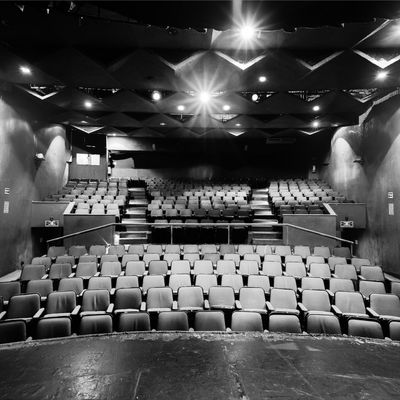
As concert halls, theaters, and museums around the world go dark, we all need to move quickly to ensure that when it’s finally safe to emerge from our lairs, we still have a cultural life left to go back to. Artists live on the edge, and so do many of the workers who support them: an army of carpenters, ushers, publicists, administrators, stage crew, librarians, costumers, wigmakers, and countless underpaid specialists who have no fallback option. Many have little or no insurance or cushion, and even if a landlord here and there proves willing to wait for a rent check, it’s unlikely the phone company will be so understanding.
Even in times of prosperity and peace, the people who keep our culture rich make sacrifices as a matter of routine. They will be the first to absorb the economic blows. This is especially ominous for New York, a city that pummels the most optimistic spirits. A lot of talented people who have struggled during everyone else’s good times, paying exorbitant prices to offer the public their gifts, may decide this is a good time to give up.
Arts organizations, too, are fragile in the best of times. Small groups — string quartets, neighborhood dance schools, shoestring theater companies — operate on the thinnest of margins. Some will likely disappear. Even titans like the Metropolitan Opera will totter. They have contracts to fulfill, sets to store, and budgets that have been set in stone for years, while revenue plummets and their donor base hunkers down. Audiences who are kept away for an extended period lose the habit and may not come back.
All this pain is necessary right now, but at least we can spread it around. The future can be preserved. Most immediately, patrons accustomed to supporting thriving companies will need to come up with more. Ticket buyers who come asking for refunds should, if they can, turn them into donations instead — not just to organizations, but directly to culture’s idled ground troops. Organizations can help their audiences help out. When Opera San José canceled its production of Mozart’s The Magic Flute yesterday, the company simultaneously announced the creation of the Opera San José Artists and Musicians Relief Fund, an acknowledgment that the public might be generous with the suddenly unemployed, even if it’s slow to pay for an organization’s overhead.
Arts groups, presenters, and producers don’t necessarily need to stop all activities, even if they can’t let audiences in the door. In the past couple of decades, performing companies have refined livestreaming: from the Met, the Royal Opera, Milan’s La Scala, and London’s National Theater all regularly broadcast to movie theaters all over the world. The Berlin Philharmonic, which runs a subscription-based digital concert hall, lifted the corona-induced gloom for a couple of hours by performing to an empty house and a worldwide audience, for free. This would be a good time for organizations large and small to extend their reach and come to where their public is: at home. Other musical organizations are doing the same. Free is fine as a teaser, but thanks to HBO & Co., a public that’s just been locked out of the auditorium is accustomed to paying for entertainment at home. Organizations that charge a nominal fee for a livestream may find a grateful worldwide audience, large enough to make up for a lot of box-office bleeding. And when it’s time to reopen, they may find themselves with a newly vibrant revenue stream.
The arts are not a luxury but a public good, a boon even to those who don’t buy tickets. They keep the city humming, draw tourists and business, and provide a haven for nonconformists. It is a function of government to help protect that world, the past 40 years’ right-wing assault on arts funding notwithstanding. The Mayor’s Office for Media and Entertainment exists “to support New York City’s thriving creative economy and make it accessible to all.” There will soon be lots of demands for emergency funds, to bail out small businesses, cab drivers, restaurants, and so on. Cultural workers, who contribute so much to urban life in normal times and who will be so severely missed in abnormal ones, need relief starting now, before the world they belong to withers away. Unless government steps in with a sense of prudence and urgency, the city’s cultural life will be weakened and convalescing for a very long time.


